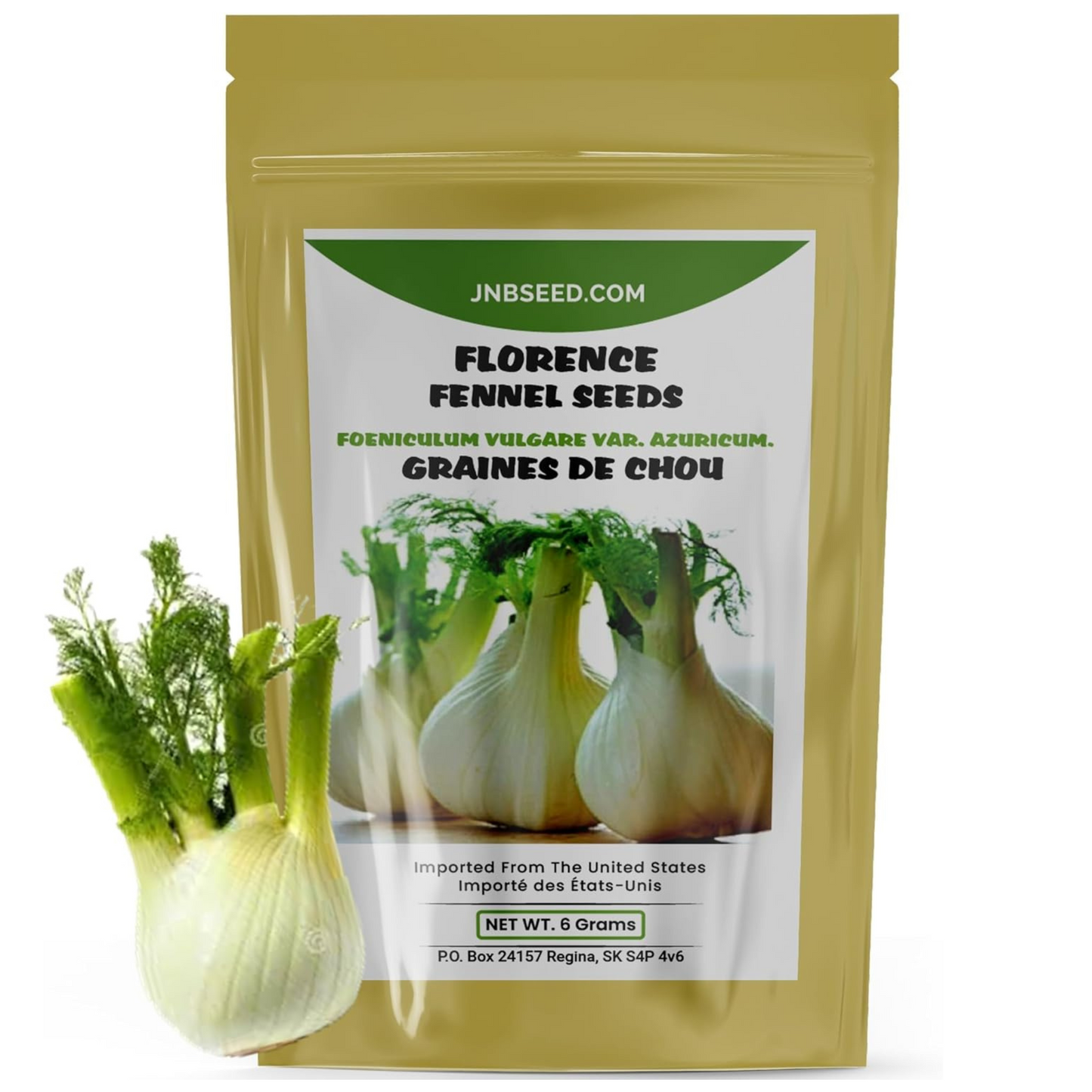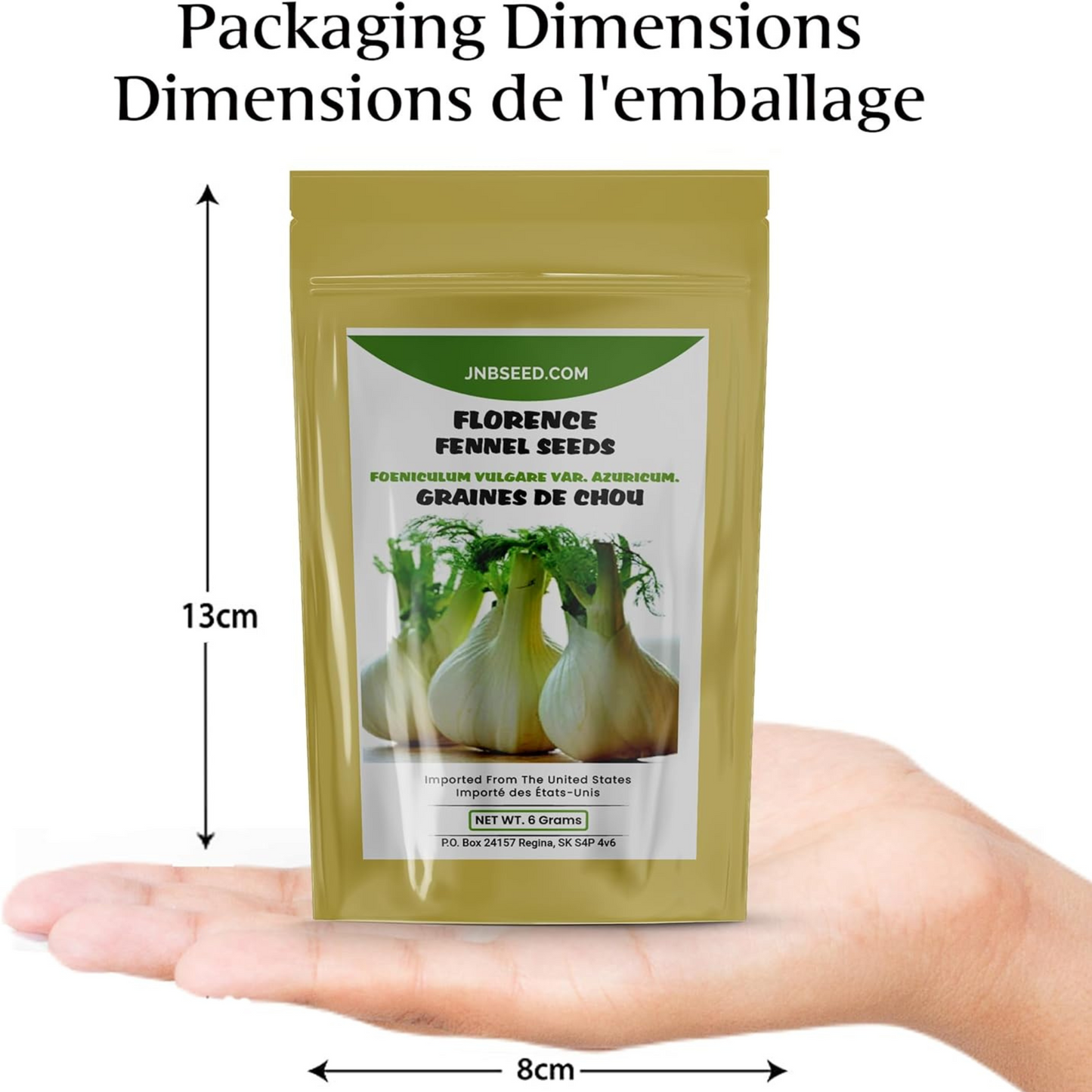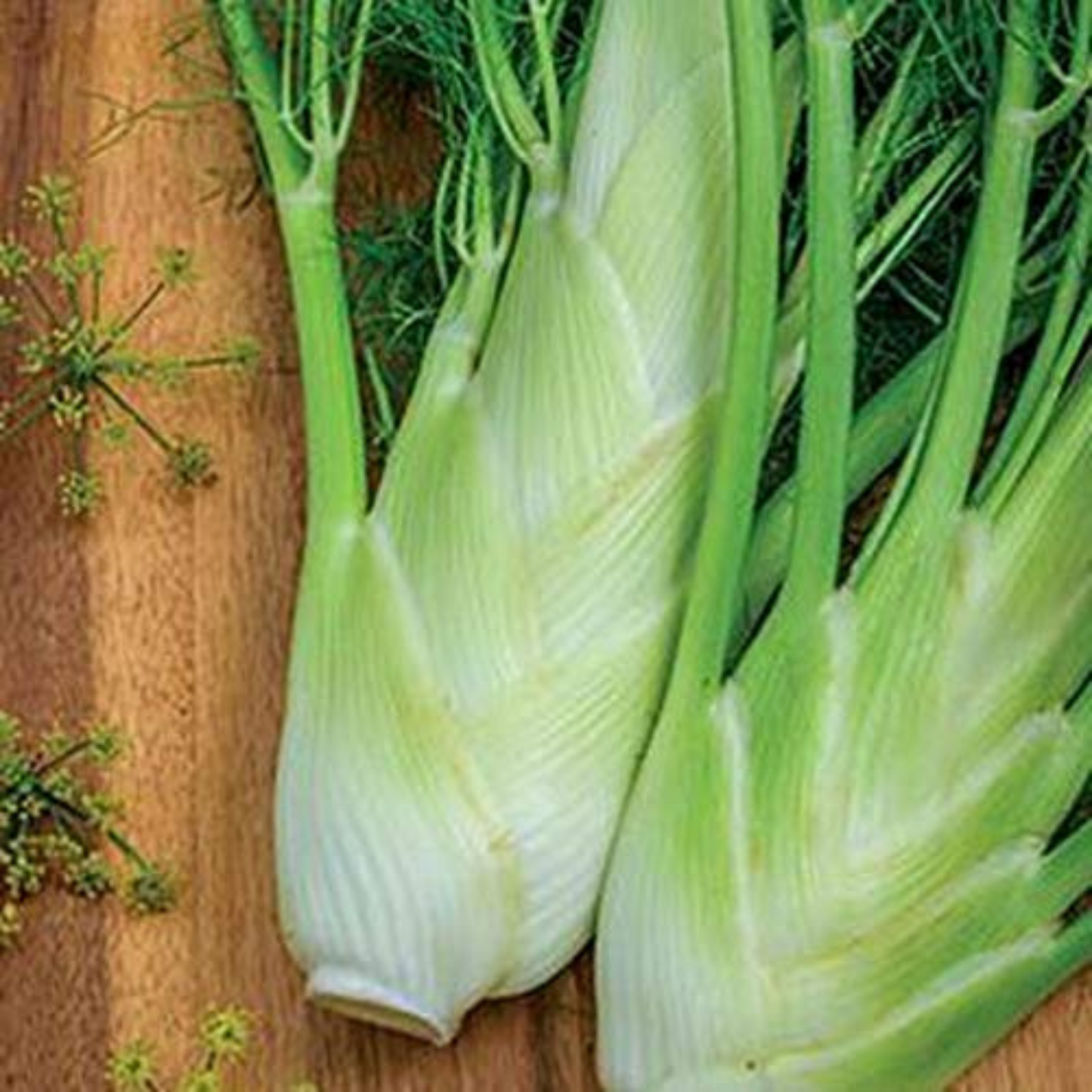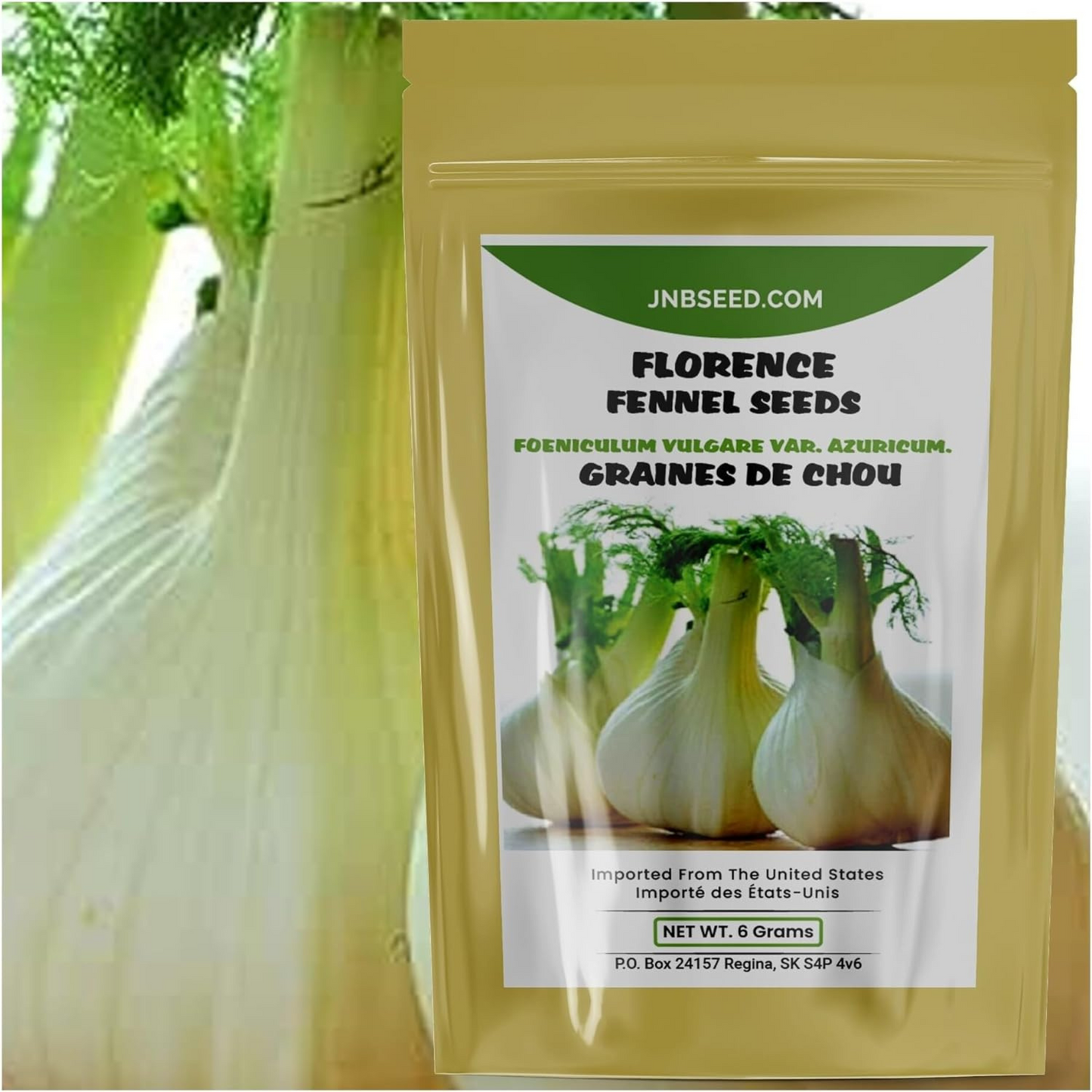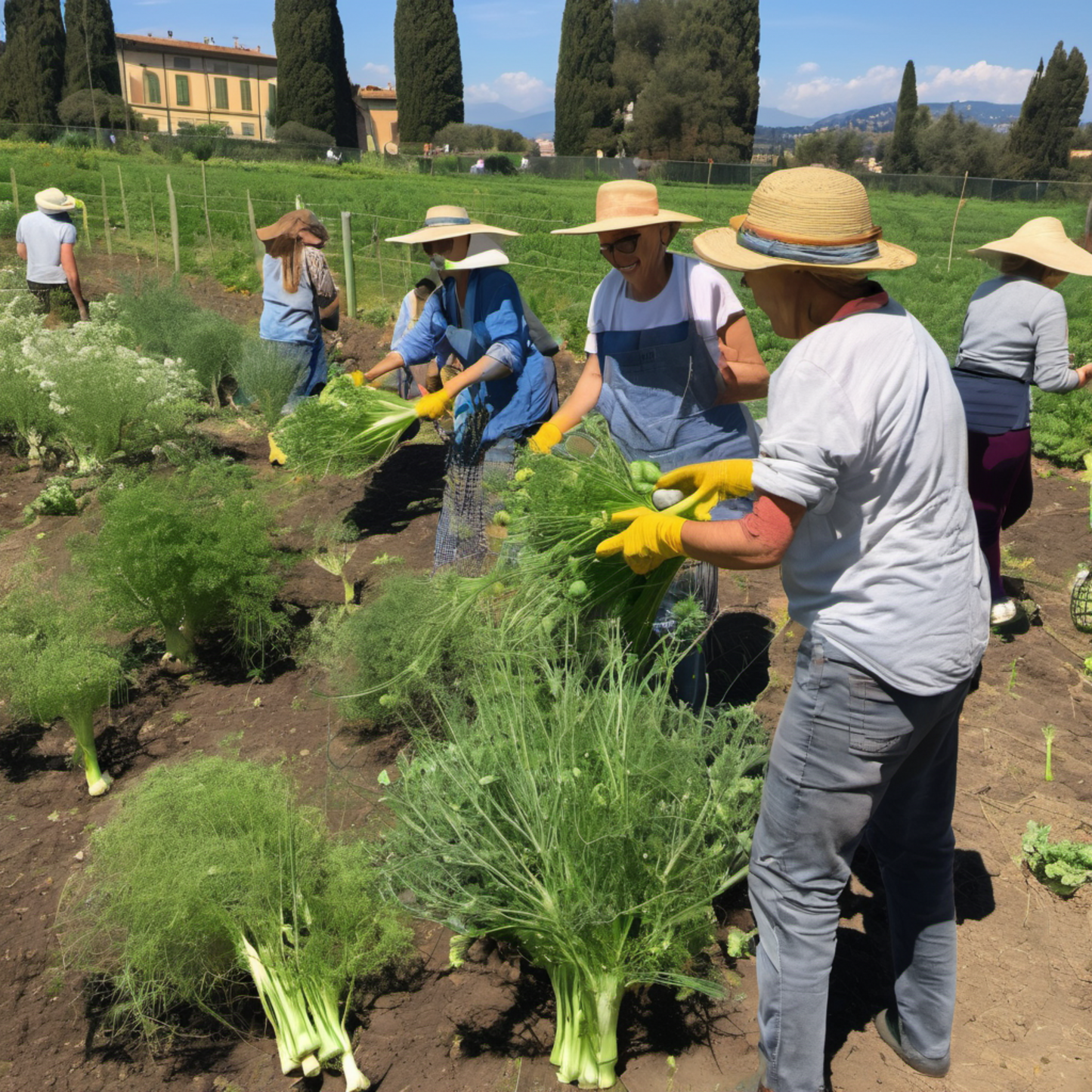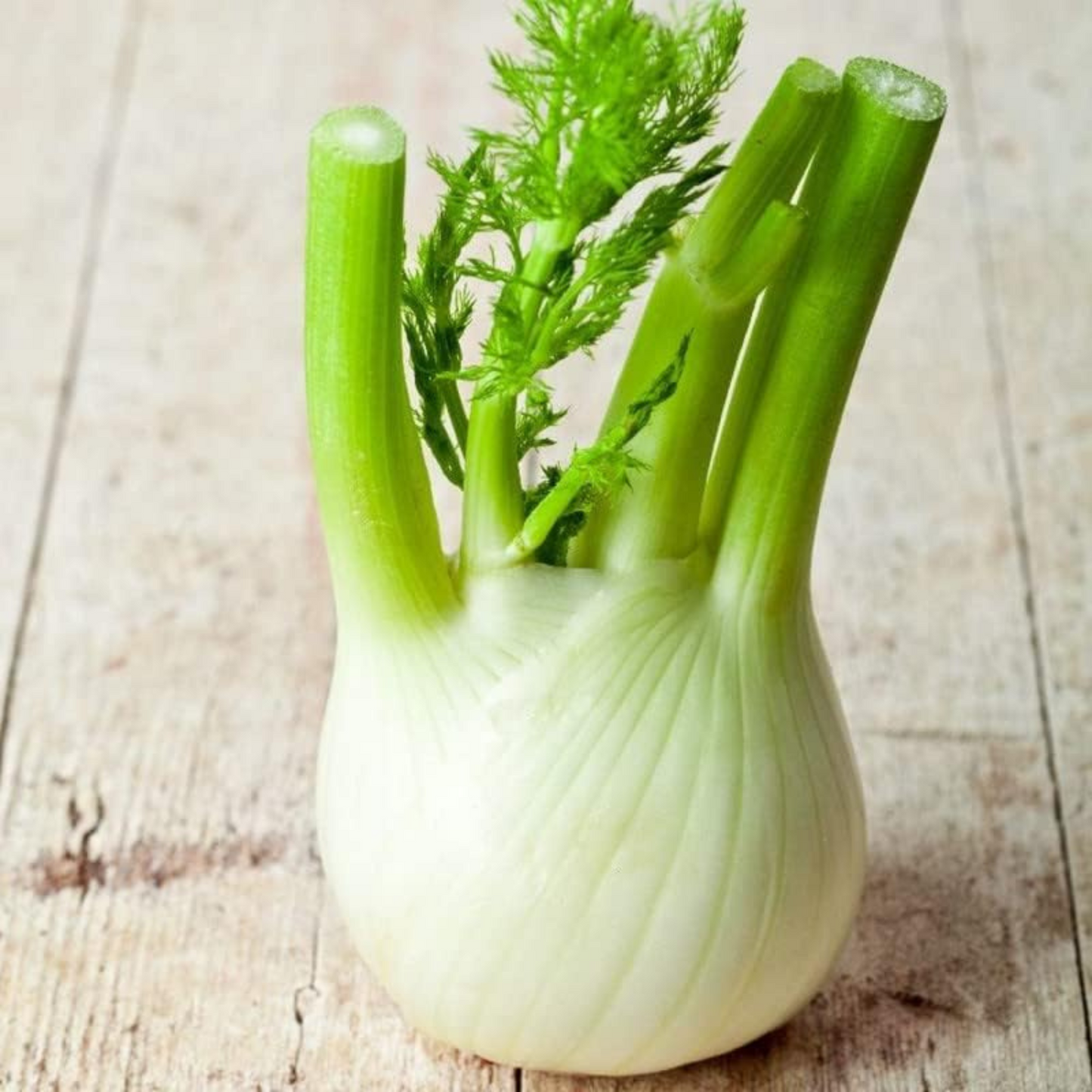JNB Seed
Florence Fennel Seeds
Florence Fennel Seeds
Couldn't load pickup availability
Florence Fennel, a member of the carrot family, is a versatile plant with a rich history and numerous culinary uses. Its feathery foliage adds flavor to a variety of dishes including salads, fish, sauces, and ethnic cuisines. With origins tracing back to ancient Greece, where it was known as "marathon" after the Battle of Marathon in 490 BC, Florence Fennel holds significance in both ancient and modern cultures. In England, it earned the nickname "meeting seeds" as people consumed fennel seeds during times of fasting or lengthy sermons to alleviate hunger pangs. Throughout history, its medicinal properties, including its ability to suppress appetite and aid in digestion, have been recognized. While fennel seeds are prevalent in Middle Eastern cuisine, the bulbous stalk base is favored in Italian and German dishes. Despite its culinary benefits, expectant mothers are advised to avoid large doses of fennel. Also known as finocchio, Florence Fennel is prized for its delicious anise flavor and is cultivated as both a vegetable and an herb, thriving in cool weather conditions to produce tender bulbs and aromatic foliage.
Florence Fennel, also referred to as finocchio, belongs to the carrot family and serves as a versatile addition to various dishes, imparting its distinct licorice-like flavor. Historically significant, this plant was dubbed "marathon" in ancient Greece, associated with the Battle of Marathon in 490 BC, and later earned the moniker "meeting seeds" in England for its use during fasting periods. Recognized for its medicinal properties, Florence Fennel finds its place in culinary traditions worldwide, with its seeds featuring prominently in Middle Eastern cuisine and its bulbous stalk base prized in Italian and German dishes. While celebrated for its flavor and culinary versatility, caution is advised for expectant mothers regarding excessive consumption. Renowned for its delicious taste and nutritional benefits, Florence Fennel offers both flavor and nutrition, making it a prized addition to any kitchen.
Share
How To Grow
How To Grow
Sowing: Begin planting Florence fennel seeds indoors approximately one month before the final frost, sowing them in peat pots at a depth of 0.6 centimeters; maintain a temperature of about 18-24 degrees Celsius for optimal germination. Alternatively, direct sowing can be done once the soil temperature reaches 18 degrees Celsius. Space the seedlings or seeds approximately 30 centimeters apart in rich, well-drained soil and full sunlight. When transplanting seedlings, handle them with care to avoid shock, which can lead to premature flowering. It's essential to plant fennel away from other garden plants, as it may adversely affect their growth.
Growing: Ensure the plants receive consistent moisture throughout their growth. Applying a layer of mulch can help retain moisture, suppress weed growth, and blanch the delicate fennel bulbs for enhanced flavor.
Harvesting
Harvesting
Harvesting Florence Fennel is a simple process, with both the leaves and stalks ready for harvest once they reach the desired size. It's best to start harvesting lightly at first to avoid stunting the growth of the bulb. The bulb itself is at its best in terms of flavor and tenderness when it reaches a diameter of approximately 10 centimeters. Once it reaches this ideal size, it's time to harvest the entire plant. For the freshest taste and optimal flavor, it's recommended to use harvested fennel within two days. When it comes to gathering seeds, wait until the seed heads start to ripen and turn a light brown color. Then, collect the seed heads individually and spread them out to dry completely. After drying, delicately rub the seed heads to separate the seeds from the stalks and store the seeds in an airtight container to preserve their freshness.
Seed Saving
Seed Saving
Seed Saving for Florence Fennel involves allowing the flowering heads to fully mature and develop seeds on the plant. Once the heads begin to ripen to a light brown color, it's time to remove them individually, being cautious as the seeds can easily drop. Spread out the heads in a location away from direct sunlight to dry thoroughly. After drying, gently rub the heads to separate the seeds from the stalks. Store the Foeniculum Vulgare seeds in an airtight container, ensuring they are kept in a cool, dry place to maintain their viability. Additionally, it's beneficial to allow select plants to go to seed naturally. Once the plant has turned brown and the seeds are fully developed, harvest them by shaking them into a bag. After a few days of further drying, label the seeds and store them in a cool, dry place for up to two years, ready for future planting.
Extra Facts
Extra Facts
Florence Fennel Seeds
Planting Methods: Direct sow seeds in early spring, pressing lightly into the soil surface as they require light to germinate. Keep the soil lightly moist until germination, which typically occurs within 10-30 days. For an early start, consider starting seeds indoors 8-10 weeks before the last frost and later transplanting them outdoors.
Blooming Season: Florence fennel typically blooms in the summer months.
Planting Season: Seeds can be planted in early spring.
Latin Name/USDA Zones: Foeniculum vulgare. Suitable for USDA Zones 5-10.
Sunlight Required/Height: Requires full sun. Grows to a height of approximately 60-90 centimeters.
Shelf Life After Test Date: Shelf life varies but typically ranges from 1 to 2 years after the test date.
Seed Type: Florence fennel seeds are of the non-GMO variety.
Soil Type: Florence fennel thrives in well-draining soil, preferably loam soil, but can also tolerate clay or sandy soil types.
